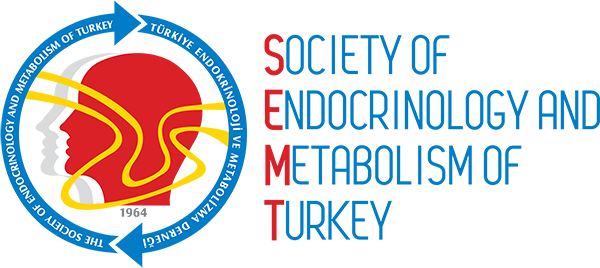Abstract
Aim: Pituitary apoplexy is a rare but serious condition . It is caused by infarction and/or haemorrhage of the pituitary gland. In this case report, we will present outpatient who has been suffering from lack of breastfeeding and headache at postpartum period.
Case: 28-year-old female patient was applied outpatient clinic suffering from lack of breastfeeding and headache at postpartum period. On presentation, her blood pressure was normal. Patient pituitary hormones levels ACTH <5 pg/mL (0-46) kortizol: 0.08 μg/dL (morning: 6.28-18) TSH:0.42 μIU/mL (0.27-4.2) free T4:9.76 pmol/L (12-22) free T3: 6.42 pmol/L (3.1-6.8) prolactin: 2.74 ng/ml (4.79-23.3) were found. Other laboratory tests , glucose: 89 mg/dl (70- 109) urea: 18 mg/dl (10-45) creatine: 0.68 mg/dl (0.5-1.4) sodium: 137 mmol/L (135-145) potassium: 4.3 mmol/L (3.5-5.1), were normal. At first, we tought Sheehan syndrome
or postpartum pituitary necrosis secondary to excessive postpartum blood losses. Because Sheehan syndrome is very common in our society. But the patient did not have much bleeding at postpartum. Magnetic resonance imaging showed a sellar heterogeneous mass with suprasellar extension and contact with the optic chiasm, compatible with adenoma apoplexy (Figure 1, 2). No evidence for pituitary apoplexy except headache and lack of breastfeeding. The patient's visual fields were normal. Oral prednisolone 5
mg/day was started. One week later, the patient felt well. Added 50 mcg/day levothyroxine. After a month's followup, re-evaluation was decided.
Conclusion: Pituitary apoplexy is a life-threatening condition. Pregnancy and postpartum period are risky periods for apoplexy. Patients may have mild symptoms. Steroid therapy is life-saving.



.png)
.png)